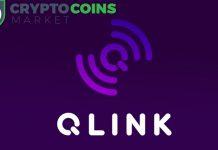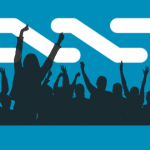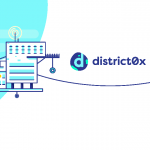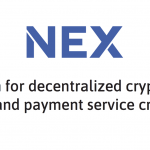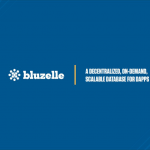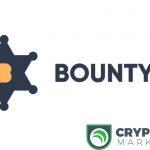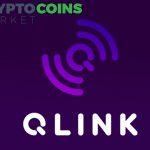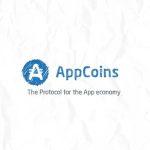SUMMARY.
- Project name: AdEx.
- Token symbol: ADX.
- Website: https://www.adex.network/en/
- Whitepaper: https://www.adex.network/adex/AdEx-Whitepaper-v.7.pdf?v=1.0.10
- Crowdsale date: June 2017.
- Crowdsale Amount: 40,000ETH.
- Current market cap: 227,913 ETH.
- ERC20 token: Yes.
- Role of Token: Utility token.
PROJECT OVERVIEW.
AdEx is a decentralized digital advertising exchange built on Ethereum blockchain technology. With ADEx Network, online marketers, publishers, and consumers are connected via powerful blockchain technology, allowing for unprecedented consumer privacy and publisher transparency.
BACKGROUND.
Television has been a king of advertisement media until recent past, when online advertising started deposing it from the throne. More and more people just do not use television and prefer online experience to the outdated options of TV.
Still, if in most cases advertisement on television is a great excuse to go to the bathroom or turn on the electric kettle, there hardly is any website free from advertisement. In most cases, those ads are intrusive and irrelevant.
However, major advertising platforms like Google or Facebook use personal data from their users to help advertisers target their audiences better and thus remove the irrelevance from the equation. This raises the question of user privacy on the internet, as well as the issue of informed consent to provide such data.
Such enormous centralized entities as aforementioned Facebook and Google often behave like dictators when it comes to relationships with advertisers and publishers: they impose limitations as to what can be advertised, and what cannot, and may block them altogether without any chance for the affected advertisers to challenge the decision in a swift manner.
Non-transparent practices of ad bidding and placement inherent in most platforms and networks usually result in confusion as to results of a certain campaign, while some use downright fraudulent schemes to trick companies into paying for impressions or clicks that never happened.
Finally, users get tired of twinkling banners and videos that they have no chance to skip, and just install ad blockers or turn away from the screen. This makes a big share of advertisement online a big waste of money, time and effort.
The solution offered by AdEx seeks to benefit all parties involved in the online advertising ecosystem, which means end users as well as advertisers and publishers, while removing unnecessary and downright risky elements currently associated with centralized infrastructure.
HOW IT WORKS.
AdEx will create an ad exchange where end users are as specific as they wish in describing their preferences in order to see only those ads that are relevant to them, while advertisers can be absolutely sure they pay for actual events, and publishers can be confident that all payments they receive are instantaneous and automatic.
In order to implement this solution, AdEx has employed smart contracts powered by Ethereum: these are essentially distributed computer programs that can facilitate online contractual agreements in a cryptographically secure manner. The use of smart contracts will make AdEx a truly transparent, decentralized and trustworthy ad serving network.
Advertisers will be able to bid on ad property such as impressions, clicks or conversions setting the bid price in ADX. Once a publisher accepts a bid from an advertiser, the tokens for this transaction are frozen until the publisher delivers proof of goal completion. When this is verified, the tokens are transferred to the publishers account.
FEATURES.
Ad exchange.
The ad exchange, built on Ethereum smart contracts, facilitates the entire relationship between publishers, advertisers and end users, therefore replacing the usual network of multiple exchanges, SSPs and DSPs and all the complexity, inaccuracy and inefficiency that comes with it.
Dapps.
On top of the exchange, DApps will be built for the publisher portal, advertiser portal and the AdEx profile (for end users). Dapps are distributed applications that connect to the Ethereum blockchain and interact with it, but typically with a user-friendly user interface. All of those DApps will be browser-based and easily accessible online, hosted by AdEx - but since they’re interacting with the blockchain directly, anyone can run their own instance of those DApps if they want to.
INTENDED USE CASES.
Advertisers.
Advertisers can purchase ad property with ADX tokens. They will be able to place a bid with a publisher, and if the latter accepts the bid, the ad is published. The advertiser can then check what exactly happened to their creative and each and every ad impression, click or conversion it got.
Say you have an online store and you are running a search ad optimized for conversions via one of the traditional networks. At the end of your campaign, you get a report for the number of conversions (and that report may vary in time because of attribution and cookies) - but the report doesn’t match the number of sales you have actually made. You have no way of verifying the data provided to you by the ad network as it is held by the network only.
When advertising with AdEx, however, you will only be paying for the actual results that your ads yield when broadcast rather than spending a chunk of your budget on invalid clicks, unverified impressions and improperly tracked conversions.
Publishers.
Publishers such as webmasters, video entertainment platforms like Stromeo, etc. will have full control over who and what is advertised with them as they would have the option to accept or decline any bid placed for their ad property within AdEx.
Publishers would only get paid after the ad delivery has been verified, which discourages ad fraud and questionable practices, establishing a better environment that encourages more and more publishers to participate.
Let’s say you are the owner of a parenting blog and want to monetize it but you’re very cautious about the type of ads that appear on your blog. With traditional advertising networks, you sign up and hope the algorithms work the way they are supposed to (but they don’t always work); on top of that, you cannot trace what ads were shown to which users. With AdEx, you can check the ad creative before you accept the bid to make sure you maintain the theme and reputation of your site.
End users.
Last but not least, end users have access to the so-called AdEx Profile - a personalized page where they can review, understand and control the ads they see. By giving control back to the user, they are encouraged to share their consumer preferences so they only see ads that are relevant and tailor-made to their profile.
Let’s imagine you’re a user who likes to travel but doesn’t have unlimited financial means. You can indicate your preference of ads about travel opportunities, as well as your budget/spending range so advertisers can target you properly and you see actual actionable offers rather than ads for trips you can’t afford or you’re not interested in.
ROADMAP.
View the roadmap here
PROJECT ADVANCEMENTS.
- AdEx team released the source code of the smart contracts.
https://medium.com/the-adex-blog/presenting-the-adex-core-cb68caf08e12 - Adex have ported to NEO to become the first DApp based on Neo.
AdEx is now engaged in developing a prototype of their service. Even though the project’s roadmap suggested that it would be released as early as next February, the team expects to finish it a few months earlier.
https://themerkle.com/partnership-between-adex-and-neo-catapults-adx-exchange-rate/
- The first designs for the AdEx UI for their platform are now ready.
https://medium.com/the-adex-blog/first-peek-at-the-adex-platform-6f79ddbc3153
AdEx token.
Advertising property within the AdEx ecosystem will be purchased or sold with AdEx token (ADX), which Is based on Ethereum.
TEAM.
View the team here.
COMPETITORS.
- Brave- Attention-based services.
AdEx faces competition from Brave (and Basic Attention Token), that pays users for watching an ad; Brave is a fast, open source, privacy-focused browser that blocks malvertisements, trackers, and contains a ledger system that anonymously captures user attention to accurately reward publishers.
The Basic Attention Token can be used to obtain a variety of advertising and attention-based services on the Brave platform, as it is exchanged between publishers, advertisers, and users. The token’s utility is derived from — or denominated by — user attention. Attention is really just focused mental engagement — on an advertisement, in this case.
The Brave browser knows where users spend their time, making it the perfect tool to calculate and reward publishers with BATs. This service creates a transparent and efficient Blockchain-based digital advertising market. Publishers receive more revenue because middlemen and fraud are reduced. Users, who opt in, receive fewer but better targeted ads that are less prone to malware. And advertisers get better data on their spending.
BAT has a marketcap of 902,095 ETH and trades at $0.261634. 31. BAT ICO raised USD 35 million in 24 seconds in their May 2017 ICO.
- AdChain- Decentralizing auditing.
Another is AdChain, launched by Los Angeles-based startup MetaX who teamed up with software firm ConsenSys. This offers decentralising auditing.
Adtech tracks ads using a distributed ledger, providing advertisers and publishers with a comprehensive trail of everything related to the campaign such as, how much was spent, who saw the ad, and conversion rates. This will ultimately allow everyone in the blockchain to acknowledge the impression event and approve it.
This level of data transparency alone strengthens adChain’s value proposition because it will enable advertisers to measure and optimize ad placements with unprecedented accuracy.
The AdChain Registry, a smart contract on the Ethereum blockchain, stores domain names accredited as non-fraudulent by ADT holders. ADT holders will access a token-weighted voting mechanism through a user interface to vote on whether a publisher domain is fraudulent or non-fraudulent.
AdChain also allows for the building of decentralized applications for the digital advertising ecosystem.
Their token ADT is trading at $0.033731 with a cap of 69,424 ETH. It launched in June 26th, 2017.
- BitClave – Decentralized Search.
In addition to a decentralized browser that pays users in BAT for their attention, a decentralized search engine is also in the works that aims to pay consumers in CAT for their consumer activity.
Currently companies must work through intermediaries, spending vast sums of currency in the hopes of reaching a viable consumer audience. What ends up happening is these become sponsored ads in the search engines.
BitClave aims to connect those searching for services or products with those offering them, while incentivizing every participant along the way to grow the base of offerings. Users are even encouraged to set the parameters of what they’re generally in the market for so that they can receive better targeted interactive ads and promotions.
If the user engages with the offering or promotion, they earn CAT. They’re in control of their data, what kind of advertising they’re interested in, and are appropriately rewarded for their activity. This is the monetary reward that the Googles get, given back to the people who generated the value with their actions in the first place.
CAT is worth $0.0170 since its 25. Jul ICO.
- Papyrus-Ecosystem that supports Real-time bidding.
Papyrus, which is yet to be launched offers the world’s first fully comprehensive and scalable decentralized ecosystem for advertisers, publishers, developers and users built on top of Ethereum blockchain and smart contracts. Papyrus introduces decentralized real-time bidding protocol (dRTB) for ad buying.
The system will unite advertisers, publishers, end users and developers of decentralized applications (DApps) in a new digital economy with a build-in reputation management system that incentivizes all parties to behave in a transparent and mutually beneficial way.
Papyrus announced its token generation event scheduled for 12th of October 2017. The project was first conceptualized in January 2017 and has been funded to date by $1 million from private investors.
How is different than other platforms in the space?
Based on Neo to offer scalability.
MARKET.
- Online advertising surpassed all other advertising mediums and accounted for close to 40% of global marketing and advertising spend in 2017. Blockchain is a natural evolution for digital advertising.
[currencyprice currency1=”ADX” currency2=”usd,eur,btc”]
[currencygraph currency1=”ADX” currency2=”usd”]




